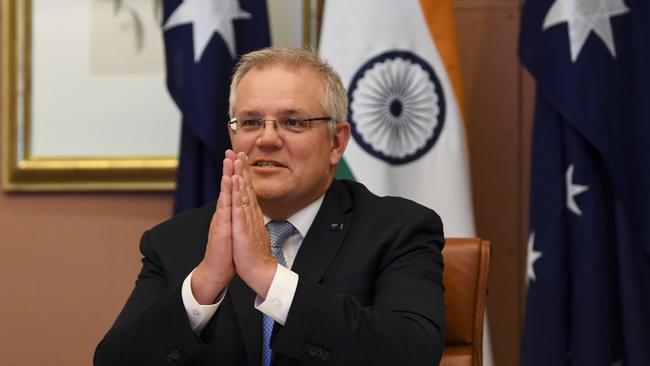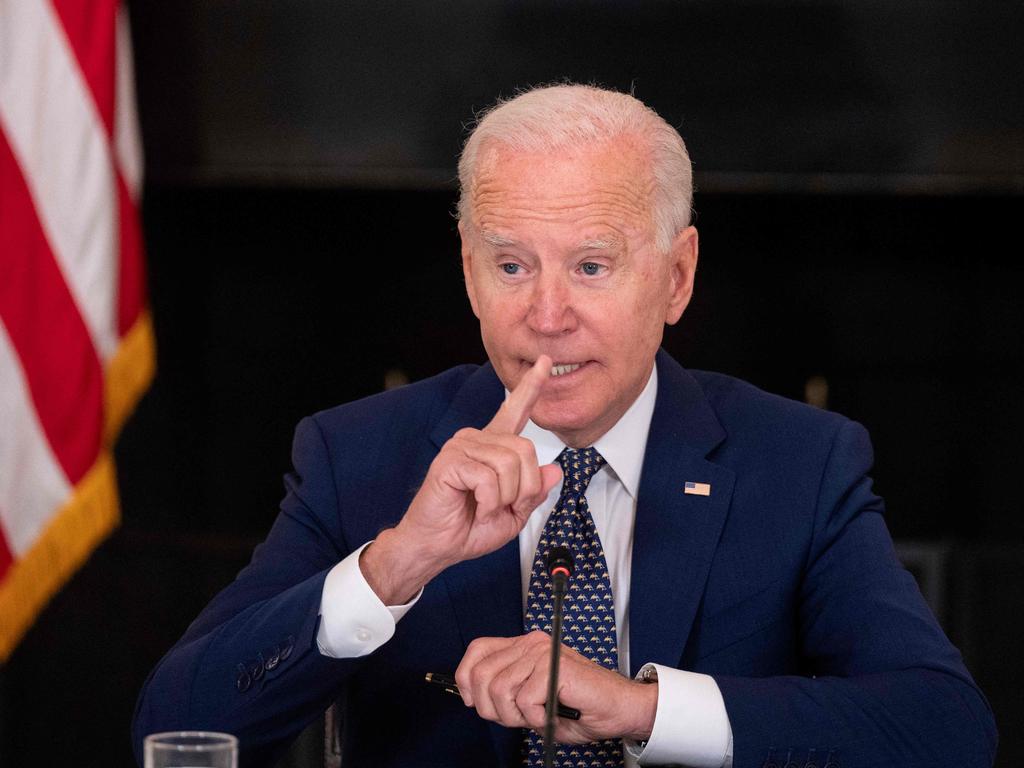
India and Australia are like-minded democracies whose relationship had been under-developed, at least until Narendra Modi became India’s Prime Minister. Under Modi, India has revived the Quadrilateral Security Dialogue, and the first in-person Quad summit is expected before the end of the year. Under Modi, India has invited Australia to join the annual Malabar naval exercises that will soon involve India, the US, Japan, Australia and also the UK’s visiting carrier strike group led by the Royal Navy’s new flagship HMS Queen Elizabeth. It will be an impressive show of strength, demonstrating the democracies’ commitment to a free and open Indo-Pacific.
But the basic problem is that China’s daunting power is a consequence of the free world’s decision to invite a communist dictatorship into global trading networks. Back then, the assumption was that rising prosperity and more economic freedom would lead, eventually, to political liberalisation too. Certainly, that was my view in 2014 when we finalised China’s first trade deal with a G20 economy. Subsequently, our exports to China did indeed grow, even faster than theirs to us; but the current capricious boycotts of Australian coal, barley, wine and seafood show that, for the Beijing regime, trade is used as a strategic weapon.
China has exploited the West’s goodwill and wishful thinking to steal our technology and undercut our industries; and, in the process, become a much more powerful competitor than the old Soviet Union ever was, because it’s now a first-rate economy that’s rapidly developing a military to match; and spoiling for a fight over Taiwan, a pluralist democracy of 25 million that’s living proof there’s no totalitarian gene in the Chinese DNA.
The pandemic has put up in flashing neon lights the extent to which the world has become dependent on Chinese imports, including in critical supply chains, that can be turned on and off like a tap. But the answer to almost every question about China is India. Although currently not as rich as China, as a democracy under the rule of law, and as the world’s second-largest producer of steel and pharmaceuticals, and with its own version of Silicon Valley, India is perfectly placed to substitute for China in global supply chains.
Australia and India are natural partners. Our troops fought together at Gallipoli, in Malaya and at El Alamein. There are now close to a million Australians of Indian background who have integrated readily into Team Australia. We are big and sophisticated enough to be useful but not so big as to be intimidating. Unlike others with India, we don’t have to live down a fraught history. Our challenge is to overcome India’s traditional protectionism, and the tendency to see trade talks as a zero-sum game, in order to seal a deal that will make the world safer for democracy.
India is currently our seventh-biggest trade partner with annual two-way trade of about $30bn, despite being hampered by tariffs and mutual perceptions that neither country is always a good place to do business. After 10 years of green obstruction and lawfare, the Adani mine is finally about to export its first coal from Queensland to India, yet that will attract a 2.5 per cent tariff, despite being Indian-owned and operated. There’s a whopping 150 per cent tariff on Australian wine exports to India and a range of tariffs on Australian wool exports to India, despite the fact that much of it is then re-exported to Australia and the wider world as high-quality Indian textiles. Then there’s a double taxation agreement that anomalously raises $35m a year by taxing here in Australia online services delivered from India, unlike with other countries.
Both countries are now boosting their negotiating teams with a view to having an “early harvest” trade agreement at least by the end of the year, as a big step towards a much deeper partnership. India is already Australia’s second-largest (by far) source of foreign students but this should be more of a two-way street. Australia could readily replace China as a key source of the rare earths and other strategic minerals that India will need, under PM Modi’s “Make in India” program, if it’s to replace China as a source of manufactured inputs at scale. With a spectacular infrastructure program now under way, as well as sweeping privatisation, India should be a place for Australian investment funds to secure long-term stable returns.
With the pandemic accelerating changes to the world order, there’s a wider resonance to Australia’s efforts to give India a leadership role among the great democracies. If Australian business and officialdom were to make the same effort with India that they’ve long made with China, there’s potential for a “family” relationship with India that was never likely with China, especially under the party-state.
Former prime minister Tony Abbott has just returned from a visit to India as Australia’s special trade envoy.







The world’s “emerging democratic superpower” is how I habitually described India as PM. With the world’s other emerging superpower becoming more belligerent almost by the day, it’s in everyone’s interests that India take its rightful place among the nations as quickly as possible. And because trade deals are about politics as much as economics, a swift deal between India and Australia would be an important sign of the democratic world’s tilt away from China, as well as boosting the long-term prosperity of both our countries.